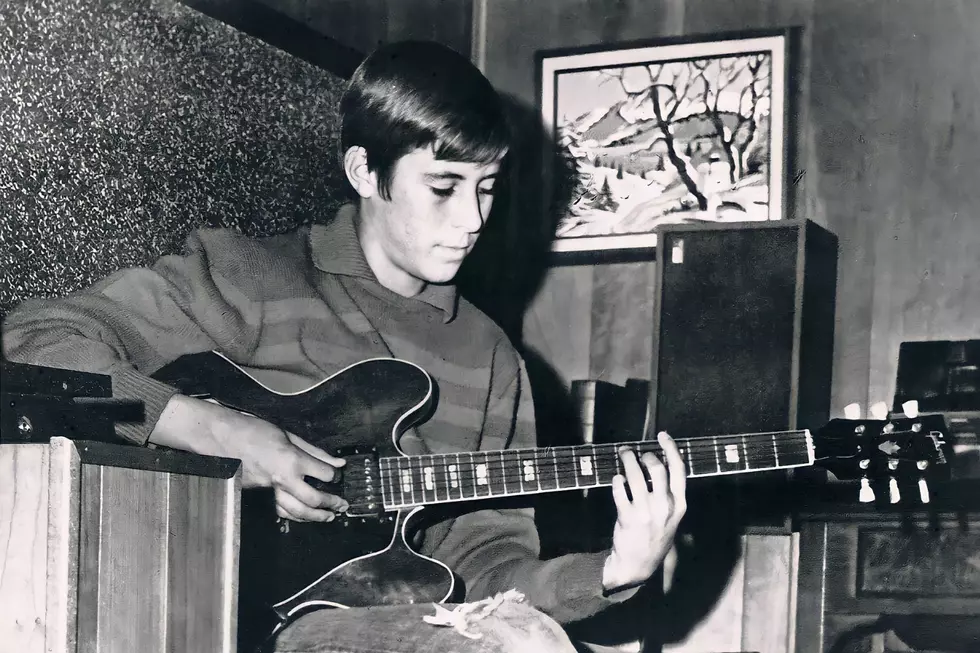
Vince Gill Dissects His Fearless New ‘Okie’ Album
Before you consider what Vince Gill's new Okie album presents, consider what it's missing. Country music's most called-upon collaborator invited no special guests. He doesn't solo — in fact, there is barely as much as a sorrowful squeal of electric guitar. Okie (Aug. 23) is as raw as you'll ever want him, both in presentation and subject matter.
There are tears. Most certainly Gill stays on-brand with 12 songs that bleed and suffer — songs that find him choking up and sniffling as he tries to describe Merle Haggard's influence or how country music has historically been diminished nationally. The album's signature track "Forever Changed" begins with 50 patient seconds of piano chords that still the room after an emotional message of tolerance called "The Price of Regret."
And we're only at song No. 3!
"I think a lot of people assume that because I’m married to Amy Grant that I’m just like her, that I had this whole life of faith and this whole life of church. I didn’t."
Gill — country music's most low key guitar-slinger — has just released a 50-minute statement about the world he lives in and the men and women who've inspired him. So often 62 is an age of sour grapes for an artist who hasn't notched a radio hit in a few years. Isn't this when we're supposed to get that song about how country radio forgot about him? You won't find resentment, anger, envy or fear on Okie, the most courageous country album of 2019.
"At 62 I’m not afraid of much," Gill says matter-of-factly. "I feel comfortable in my own heart. I know my intent, and I know that these songs are without judgement. I think if your intent is right and your judgment is nil, then it’s OK.”
WATCH: Vince Gill Shares the Story of "Forever Changed"
"Forever Changed" is the signature song if only because it's the most obvious of the group of songs that make a point. The ballad provides a voice for victims of sexual abuse, refusing to rely on the tools of metaphor and insinuation. It's a piercing lyric that will move anyone who hears it, but it's not the only strong sentiment.
"The Price of Regret" is about judgement, and not of the Jesus variety. "We're black and we're white / We're blinded by sight / Close your eyes and tell me the color of my skin / If we let today, just pass away / We'd have kindness and forgiveness, there's no doubt," he sings.
“I feel like we’re often led astray by vision, the ability to see," Gill shares. "You see a guy on the street and he looks like he doesn’t have a dime or he’s dressed in a three-piece suit or he’s driving a crappy car, or a nice car. Or he’s white or he’s black or he’s fat or he’s skinny ... We do all this judgement. We perceive what we think this is and to me that’s an unfair way to embrace anything or anybody. I feel like if you close your eyes, you don’t know any of that.”
"A World Without Merle" is his Haggard tribute. Gill calls the Hag his all-time favorite, finding the hope and good in a man who also served hard time in prison. His music — and by extension, our lives — are better for that time served, Gill says.
"When My Amy Prays" holds his wife and her faith up high while admitting to his own shortcomings in that arena. Once again, he hopes for no assumptions and makes no judgements. It's a truly unique song about faith. “I think a lot of people assume that because I’m married to Amy Grant that I’m just like her, that I had this whole life of faith and this whole life of church," he says. "I didn’t.”
"A Letter to My Mama" is a tearjerking tribute to Gill's mother. "Nothin' Like a Guy Clark Song" tips his hat to the late songwriter, a legend who had a tremendous influence on Gill until he died in 2016. "The Red Words" once again borrows from the Bible to make a point. This isn't comfortable material for for the Hall of Famer — in fact, he'll joke that whenever he writes a song about God, he'll run it to his wife and ask, "Is this close?"
Comfort isn't what Okie is about, however.
WATCH: Vince Gill Talks About His Future With the Eagles
See 50 Modern Country Songs for Traditionalists
More From Taste of Country




![All Grown Up: See Country Stars’ Kids, Then + Now [Pictures]](http://townsquare.media/site/204/files/2024/02/attachment-reba-shelby.jpg?w=980&q=75)
![Amy Grant + Vince Gill Mark Milestone 100th Christmas at the Ryman Show [Pictures]](http://townsquare.media/site/204/files/2023/12/attachment-vince-gill-amy-grant-ryman-christmas-2023.jpg?w=980&q=75)



